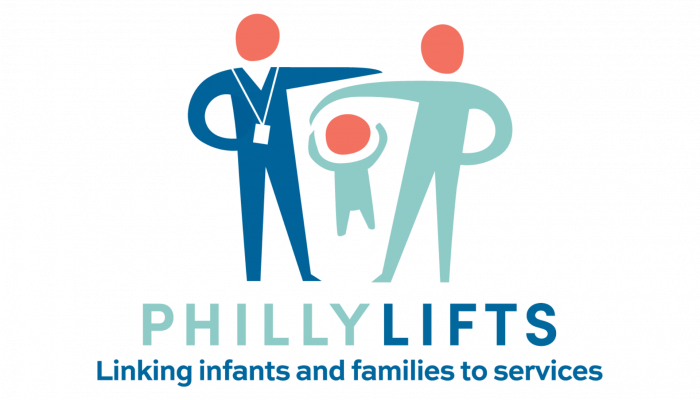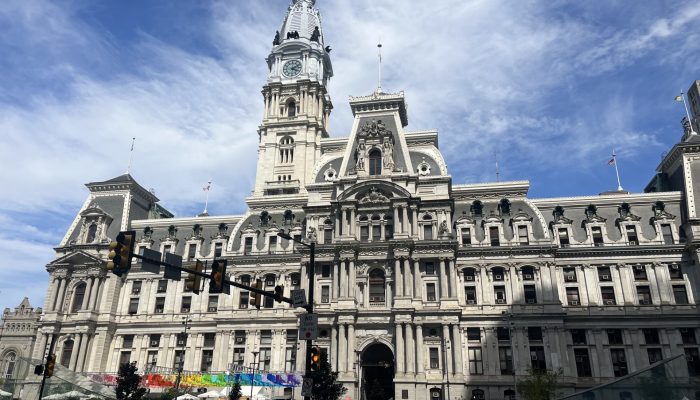When we think about drug use, we sometimes forget to consider its impact on infants and young children. That impact can be substantial. If a parent has used drugs while pregnant, the unborn child can become dependent on those drugs and face withdrawal after delivery. This condition is called Neonatal Abstinence Syndrome (NAS).
NAS affects about 250 infants in Philadelphia each year. To support these infants and their families, the Department of Public Health’s Substance Use and Harm Reduction program provides harm reduction support, naloxone training, and connection to treatment.
The NAS program
The City’s NAS program oversees all partnerships with agencies that serve the NAS population. The program also partners with other agencies and organizations across the city to ensure that families of infants diagnosed with NAS get the support they need to thrive.
“Our goal is to prevent overdose and possible infectious disease transmission among mothers of infants diagnosed with NAS,” says Deborah Hinds, NAS program manager. “To do that, we need to understand how many infants are born with NAS, and identify how we can help.”
The NAS program is not affiliated with Department of Human Services (DHS). “Some parents feel vulnerable because they’ve had interactions with DHS in the past and are unsure if we are associated with DHS,” Hinds says. “They are concerned that their children will be taken away from them if they talk with us. This is not the case. We are here to help them and give them the resources they need.”
To provide these resources, the NAS program created an outreach component called Philly LIFTS.
Philly LIFTS
Philly LIFTS is a program that provides direct support to parents and children affected by NAS. The program aims to “lift” parents and their children to support and services (LIFTS stands for Linking Infants and Families to Services).
“It’s a conversation. We want to hear about mom or dad’s experience and understand how we can help.”
– Carla Calabrese, NAS outreach specialist
Enrollment in the program is easy. First, an outreach specialist introduces families to the program and invites them to participate. This outreach is typically done by mail. If the parent agrees to participate, the outreach specialist schedules a home visit via phone call or mail.
A house call
The Philly LIFTS outreach team includes an outreach specialist, a harm reduction specialist, and a public health nurse. All team members attend the home visit and bring baby supplies. The team also provides the family with resources about naloxone training, infectious disease prevention training, and STI and family planning.
The public health nurse provides medical support as needed and answers clinical and parenting questions. The team also helps to connect parents to a range of services that address drugs and alcohol, diapers, formula, case management, and clothing for the family.
“It’s a conversation,” says Carla Calabrese, NAS outreach specialist. “We want to hear about mom or dad’s experience and understand how we can help.”
A typical visit can last between 60 and 90 minutes based on the needs of each family. A meeting can be as short or as long as the family likes.
“Lately, we’ve made great progress with the parents,” Hinds says. “Since we’ve been able to connect them to baby supplies like diapers and formula, the parents understand that we are here to help.”
A place to tell their story
Philly LIFTS also provides a support group for moms to meet with one another and tell their story. Faith Robinson, another outreach specialist for the program, emphasizes the benefits of having a safe space for parents to talk about their experience.
“The support group is a non-judgmental place where moms can feel comfortable telling their story to women who can relate,” Robinson says. “We want to hear from them and understand how we can better serve them.”
To get in touch with the team and join the support group, reach out to Carla Calabrese at carla.calabrese@phila.gov or call (215) 776-4406.
A brighter future
The entire team behind the NAS program and Philly LIFTS is passionately committed to helping families cope with the challenge of substance use. Says Calabrese: “I love to help parents because I have definitely been in their shoes, and I have lost the will to fight before. It makes me so happy to be in a position to help other people.”



